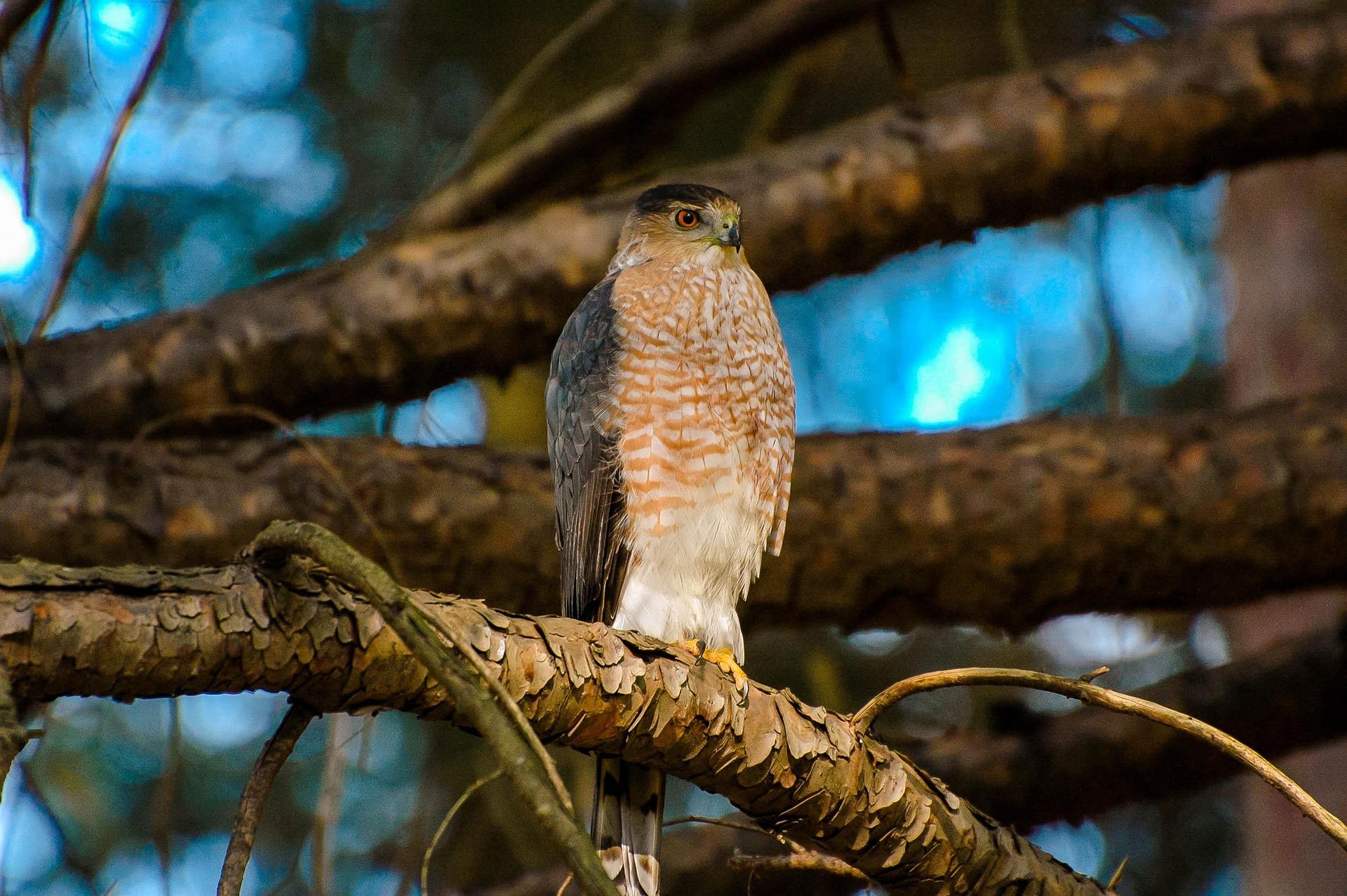
Species Spotlight: Cooper's Hawk
Cooper’s hawks (Astur cooperii) are a medium-sized hawk and common year-round residents in southern California. This species has the classic accipiter shape with broad shoulders/wings and a very long, rounded tail. They are about the size of an American crow (Corvus brachyrhynchos) and smaller than the more common red-tailed hawk (Buteo jamaicensis). Adults are typically steel blue-gray above with reddish barring on the underparts and thick dark bands on the tail. Cooper’s hawks occur in forests and woodlands but can also be regularly observed in recreational parks, neighborhoods, backyard bird feeders, and along streets with tall trees.
Cooper’s hawks mainly eat medium-sized birds such as European starlings (Sturnus vulgaris), mourning doves (Zenaida macroura), rock pigeons (Columba livia), California scrub jays (Aphelocoma californica), and California quails (Callipepla californica). They also eat many small mammals such as ground squirrels, mice, and chipmunks. This hawk is a stealthy hunter and aerial forager that typically moves from perch to perch in dense vegetation, listening and watching for prey, and then taking flight at high speeds to overtake prey. They also sometimes will fly low and quietly over the ground, using shrubs and other vegetation to sneak up on prey and take them by surprise. Cooper’s hawks are highly adapted to suburban areas and are often observed near bird feeders in residential backyards looking for potential prey.
Cooper’s hawks primarily breed in riparian areas and oak woodlands, and build their nest near the top of a tree approximately 25-50 feet above the ground. The nest is bulky and made with sticks and lined with softer materials such as strips of bark. The female will lay 3 to 5 pale bluish-white eggs and is primarily responsible for incubation, usually 34-36 days. During incubation, the male will hunt and bring food back to the female and will continue this role once the eggs have hatched. The young will start to climb and move around in the nest tree after about 4 weeks and will eventually take flight around 4-5 weeks.
As part of the HCP monitoring program, the Rancho Mission Viejo Land Trust (RMVLT) has been conducting annual monitoring surveys to track the extent and general health of existing coast live oak populations, identify potential stressors (e.g., invasive species, disease), and implement appropriate management actions to enhance, restore, and maintain oak woodland and forest vegetation communities within the HCP Planning Area. Ultimately, a total of 4,537 acres of suitable nesting and foraging habitat for Cooper’s hawk would be conserved and managed in perpetuity within the Habitat Reserve.
